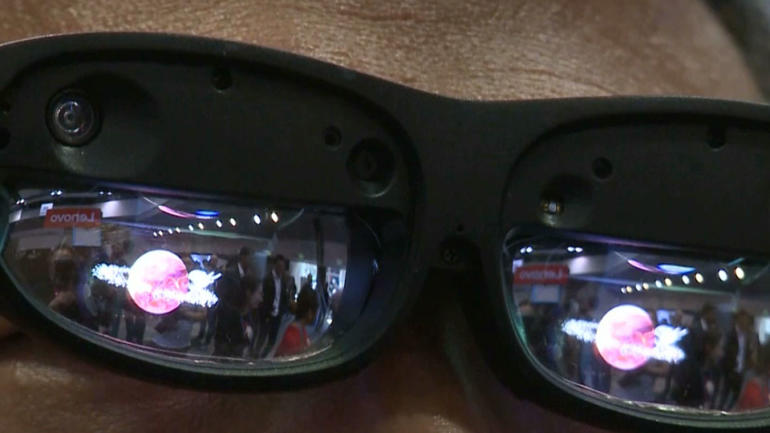Augmented Reality or AR – superimposing computer-generated images on a user’s view of the world – is gaining traction in new markets. But many say it’s still in its infancy.
CGTN’s Mark Niu takes us to the Augmented World Expo and the latest innovations.
At Augmented Reality World Expo, companies show how AR can be used to diagnose problems from afar to keep operations running smoothly.
“Recent surveys are showing that over 70 percent of Fortune 1000 companies have already adopted AR or are planning to adopt it in the next couple of years, so they see the need,” said Ori Inbar, Co-Founder of Augmented World Expo”
Using Atheer’s Augmented Reality software, Porsche has been able to reduce customer resolution time by 40 percent.
When facing a mystery problem, technicians slip on a pair of AR glasses and call an expert to guide them through the repair.
”In the past, if the technician couldn’t fix a car, Porsche would send one of their experts to the dealership or the dealership would send the car back to Atlanta or wherever they needed to tend to. That’s both fabulously expensive, time-consuming and customers get upset,” said Amar Dhaliwal, CEO of Atheer.
The industry is well aware of workers’ fears that robots and artificial intelligence will soon be taking their jobs.
But some experts believe AR has the potential to make human workers more productive by training them only when they need it.
“If we can literally teach you what you are doing, give you a quick refresher when you do your job or while you are doing a job or what you are supposed to do, that’s going to be much more cost effective than spending weeks or years doing repetition,” said Scott Montgomerie, Co-Founder & CEO of Scope AR while giving a presentation on stage.
While AR glasses have made inroads in the enterprise, companies are still having trouble finding the right fit for ordinary consumers.
Beijing’s nreal is hoping to bridge that gap by announcing its 500 dollar mixed reality glasses will hit the market in limited quantities this year and the mass market next year.
You can check your mail, play games and watch videos anywhere.
“At the end of the day for regular people or consumers to wear it, it has to be comfortable and also friendly on your face,” said Francis Bea, a spokesperson at nreal. ”We don’t actually have any cameras that are taking images of people around you, so it’s kind of a rather enclosed environment.”
Augmented World Expo’s co-founder believes eyewear of the future should not rely on capturing and selling personal data.
“I’m talking about the idea of collecting the knowledge across many, many people,” said Inbar. “And that knowledge is very valuable, so you can use that to sell it to other people as a service. I think it could be much more valuable then what advertising is doing today.”
While pioneering specs like the original Google Glass failed for being too invasive, the success of the next generation of ARR may hinge on not only reinventing design, but business models as well.
 CGTN America
CGTN America

